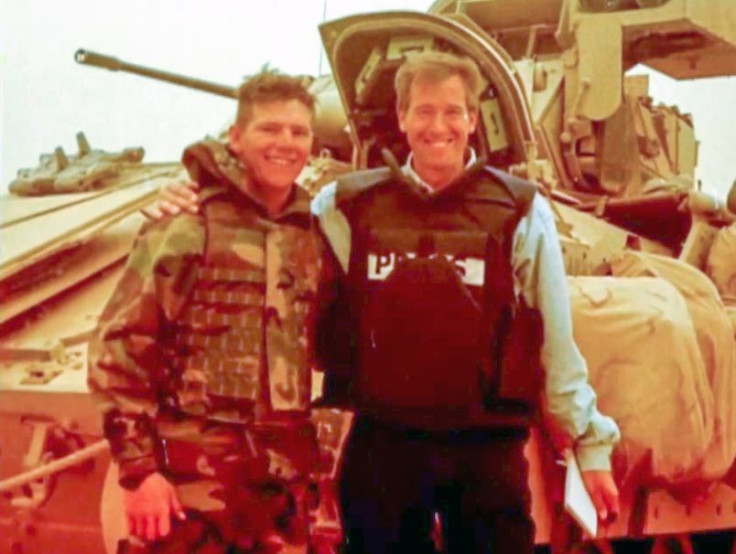Did Brian Williams Lie About Iraq War? A Body Language Expert Weighs In On His Helicopter Story And Apology

NBC's Brian Williams told, and retold, a fantastic and harrowing story of his time as an embedded reporter during the Iraq War. Williams said he was in U.S. military helicopter that came under fire, hit by a rocket-propelled grenade. But looking back at all the times he shared the story, were there any clues he was lying? Body language expert Patti Wood said there were a lot of odd aspects in Williams' storytelling and his choice of words, which could indicate he was lying.
Wood examined Williams' appearance on the "Late Show With David Letterman," focusing on body language and content. "You always have to have caveats for war stories because some men want to distance themselves from these stories, and he's also a correspondent," Wood said, in framing why it may not have been so easy to call Williams out for lying about his experience.
Wood immediately picked out Williams' wording, such as pronoun placement, as a major red flag. "When he talks about, 'Two of the helicopters were hit, including the one I was in,' that's just very odd phrasing. Imagine if you were in a car accident and you're describing it, you wouldn't say, 'Two of the cars were in the accident, including the car I was in,'" she said. Based on the word choice, she said Williams appeared to be distancing himself from the experience and that one would lead with the truth in that situation.
According to Wood: "What I think is really interesting is he says, 'I hope they know that they have my greatest respect and also now my apology.' As he says, 'my apology,' his head goes down, his eyes close and his voice goes unusually soft and faint. I would like to say that's normal shame behavior, but it really only shows embarassment. I would have preferred showing his sincerity, as he did earlier, by looking at the camera, using statements like, 'I am sorry.'"
His body language also appeared awry, Wood indicated. "I'm looking at, overall, if he is in his memory recalling the event and that should show in facial expression and movement. Instead, he stays very still. His outside hand is in what's called the 'guarded wall position,' on the outside of his leg. His left leg is actually folded over away from Letterman," she said. "Typically, male guests fold toward him because he [Letterman] gets them into an intimate interaction."
Another thing Wood took into account was his description of being hit -- and Williams does not move when using that verb, instead only moving his head slightly down. She pointed out that Williams emphasizes power words and verbs with a head motion. In telling a story about being hit, she would expect to see him move or flinch in the direction of being hit. If he were hit from above, for example, then he would move down.
Another tell associated with Williams' body language is a lack of fear, Wood suggested. "If you look at his upper chest, it's expanded out and his arm is around the back, it's what I call the 'braggart's position,'" she said. "He tells the story in a light, comedic way, and I don't really feel his fear." She does say she gets a sense of fear from Williams when he discusses a sandstorm.
Williams recanted his story Wednesday, apologizing via Facebook. "Because I have no desire to fictionalize my experience (we all saw it happened the first time) and no need to dramatize events as they actually happened, I think the constant viewing of the video showing us inspecting the impact area -- and the fog of memory over 12 years -- made me conflate the two, and I apologize," Williams said in the Facebook post.
As for the apology, Wood said he just wanted it to be over. "Rushing through the apology, to me, shows a desire to distance himself from the guilt and get on with it, rather than really sincere remorse." Another verbal cue is his use of "rather" or "instead," which is used by broadcasters when they speak incorrectly as a way to cover up a mistake. She doesn't see how Williams' excuse -- that the story was an attempt to honor a veteran -- was plausible based on the way he told the story on the Letterman show.
© Copyright IBTimes 2025. All rights reserved.






















